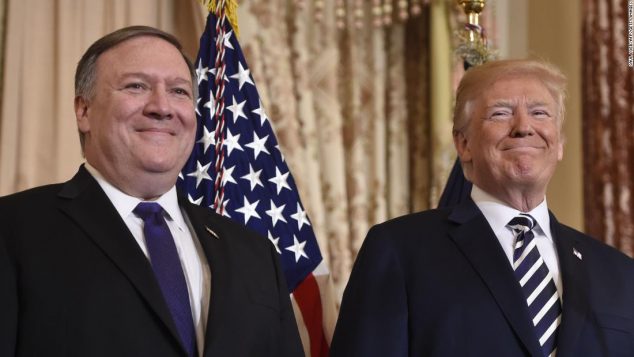WASHINGTON (Reuters) – The United States will impose visa restrictions on people responsible for any International Criminal Court probe, a move aimed at preventing the court from pursuing the United States and its allies on Afghanistan, Secretary of State Mike Pompeo said on Friday.
The Trump administration in September said that if the court launched a probe of war crimes in Afghanistan, it would consider banning ICC judges and prosecutors from entering the United States, sanctioning funds they have there and prosecuting them in U.S. courts.
Washington took the first step on Friday with Pompeo’s announcement.
“I’m announcing a policy of U.S. visa restrictions on those individuals directly responsible for any ICC investigation of U.S. personnel,” Pompeo told a news conference in Washington.
“These visa restrictions may also be used to deter ICC efforts to pursue allied personnel, including Israelis, without allies’ consent.”
Pompeo said the policy was already being implemented but would not elaborate, citing visa privacy laws.
“These visa restrictions will not be the end of our efforts,” he said. “We’re prepared to take additional steps, including economic sanctions, if the ICC does not change its course.”
A director at Human Rights Watch, Andrea Prasow, described the announcement as a “thuggish attempt to penalise investigators” at the court.
“Taking action against those who work for the ICC sends a clear message to torturers and murderers alike: Their crimes may continue unchecked,” she said, and called on U.S. lawmakers to rescind the move and express support for the court.
In November 2017, the ICC prosecutor requested authorization from judges to initiate an investigation into alleged war crimes and crimes against humanity in Afghanistan since May 1, 2003, including in states where the CIA held prisoners.
Judges are reviewing all material submitted by the prosecutor, and must decide whether or not to authorise an investigation.
With 123 member states, including the entire European Union, the ICC is a court of last resort. It was established in 2002 to prosecute war crimes, genocide or crimes against humanity when a country is unable or unwilling to prosecute perpetrators itself. Major powers, including the United States, China and Russia, are not members.
